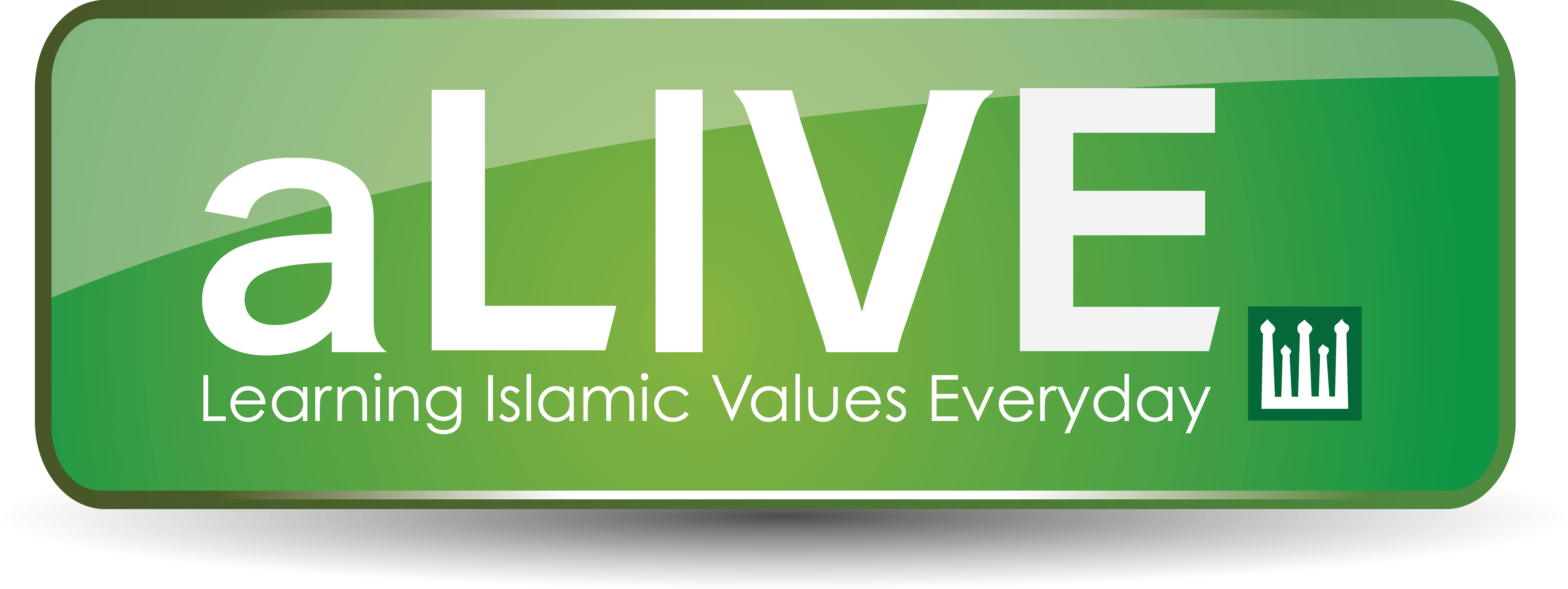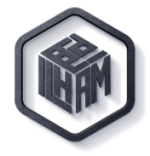aLIVE

aLIVE – Learning Islamic Values Everyday
Our aLIVE programme caters to young muslims from the age of 5 to 20. It is made relevant and age-appropriate to the development of kids, tweens, teens and youth. Designed to appeal to young people, the programme aims to inspire students to continue Learning Islamic Values Everyday.
The programmes are categorised into four levels:
Kids aLIVE Year 1-4 | 5 to 8 years old |
Tweens aLIVE Year 1-4 | 9 to 12 years old |
Teens aLIVE Year 1-4 | 13 to 16 years old |
Youth aLIVE Year 1 & 2 | 17 to 20 years old |
Learning Approach
The aLIVE programme adopts a thematic approach to learning. Different themes appropriate for the different levels have been developed so that lessons can be delivered effectively.
An Early Start to Islam
Children at this age will be introduced to the basics of Aqidah as a foundation to their Islamic learning journey.
Desired Outcome
- Develop the love for Allah and Prophet Muhammad s.a.w
- Refer to the Sahabahs and Prophets as examples
- Know what is right (Ma’ruf) and what is wrong (Mungkar)
- Develop the habits to perform solat and good deeds appropriate to their age
- Articulate what they have learnt
- Love their families, friends, teachers and school
- Be able to express and appreciate the beauty of Allah’s creations.
- Be able to recognize Arabic letters, read and write basic Arabic
Teaching Approaches
- PLAY as the central approach to learning
- Thematic learning of Islamic values and practices
- Developmentally and age-appropriate lessons on Islam
- Role modeling as an important element of value-based learning
- A multi-sensory approach to inquire, try, see, do, share and reflect
- A learning environment that is safe, fun, attractive and motivating
- Teacher’s and parent’s observation of children’s learning and development
- Smaller teacher to children ratio
|
BELIEFS & PRACTICES |
LIFE SKILLS & CHARACTER |
SOCIAL & CIVILISATIONAL ISLAM |
QURANIC LITERACY & UNDERSTANDING |
|
|
Kids Year 1 |
|
|
|
|
|
Kids Year 2 |
|
|
|
|
|
Kids Year 3 |
Pillars of Iman:
Pillars of Islam (Solat):
Pillars of Islam (Fasting):
Pillars of Islam (Hajj):
|
|
|
|
|
Kids Year 4 |
|
|
|
|
Exploring, Discovering & Learning Islam
This programme builds on students’ existing knowledge of Islam from the Kids programme. Students are guided on understanding and carrying out responsibilities as a Muslim, so that they will be prepared to face the challenges of pre-teen life.
Desired Outcome
- Distinguish right from wrong
- Possess good akhlak
- Understand, appreciate and practice the Pillars of Islam (Arkanul Islam)
- Have a deeper understanding of Aqidah and Pillars of Iman (Arkanul Iman)
- Read the Quran well, memorise and appreciate the general meaning of selected surahs
Teaching Approaches
- Holistic Development Learning (age appropriate and thematic)
- Integrated Learning (religious and life skills)
- Value-Based Learning (moral and character building)
- Active Learning (hands on activity & project-based learning)
- Supporting Learning (home and family support)
- Interactive Learning
|
BELIEFS & PRACTICES |
LIFE SKILLS & CHARACTER |
SOCIAL & CIVILISATIONAL ISLAM |
QURANIC LITERACY & UNDERSTANDING |
Tweens Year 1 |
|
Have a greater self-awareness & self-acceptance |
|
Memorisation, reading and understanding of
|
Tweens Year 2 (10 years old) |
|
Learn and emulate positive attitudes of a Muslim: optimism, acceptance & resilience |
|
Memorisation, reading and understanding of
|
Tweens Year 3 (11 years old) |
|
|
|
|
Tweens Year 4 |
|
|
|
|
Exploring, Discovering & Learning Islam
This programme reinforces Islamic values and builds on students’ existing knowledge of Islam. It also provides a platform for students to discuss Islamic perspectives on issues like identity, entertainment, relationships and other relevant areas concerning teens.
Desired Outcome
- Acquire a confident Muslim teen identity with strong Islamic moral character
- Learn, appreciate and manifest Islamic values and teachings appropriate for muslim teens
- Develop passion for learning and Al-Qur’an-companionship
- Emulate exemplary spirit of Islam from great muslim personalities and Islamic heritage
Teaching Approaches
- Active and collaborative learning as the central approach
- Thematic learning of Islamic values, practices and life skills
- Developmentally and age-appropriate lessons on Islam
- Multisensory approach to learning
- A learning environment that is fun, friendly, exciting and motivating
- Effective evaluation techniques on programme outcomes
- Providing role models for teens to emulate
|
|
BELIEFS & PRACTICES |
LIFE SKILLS & CHARACTER |
SOCIAL & CIVILISATIONAL ISLAM |
QURANIC LITERACY & UNDERSTANDING |
|
Teens Year 1-4 |
|
|
|
|
Empowering Tomorrow’s Leaders with Islam
This programme provides a variety of modules for youths with different backgrounds and interests. It also provides an opportunity for youths with minimal or no formal Islamic education background to “catch up” via the “Revisit Series”.
Desired Outcome
- Acquire sufficient knowledge on the practices and creed of Islam
- Differentiate between correct and incorrect teachings
- Do basic research on Islamic teachings and practices
- Be enlightened about Islamic history and civilisation and be able to relate to the pearls of wisdom within
- Internalise the values and moral teachings of Islam into every aspect of life
Youth Programme Format
- Primer Series
- Quran & Quranic Sciences
- Hadith and Hadith Sciences
- Fiqh & Fiqh Sciences
- Revisit Series
- Islamic Beliefs
- Islamic Practices
- Elective Series
- Camp Prepare (NS Prep)
- Thinkers & Islamic Thought
- Quranic Arabic
- Islamic Civilisation
|
|
TAUHID & FIQH |
AKHLAK & CHARACTER |
SIRAH & ISLAMIC CIVILISATION |
QURANIC LITERACY & UNDERSTANDING |
|
Youth Year 1 & 2 |
|
|
|
|
Content
The aLIVE programme adopts a thematic approach to learning. Different themes appropriate for the different levels have been developed so that lessons can be delivered effectively. The subjects on Aqidah/Tauhid and Fiqh are presented as “Beliefs & Practices”, Akhlak as “Life Skills & Character”, Sirah and Tarikh as “Social & Civilisational Islam” and Iqra’ and Quran Reading as “Quranic Literacy”.

The four areas are given different emphasis depending on the programme, the module and the topic. For example, more emphasis is placed on Quranic Literacy in the Kids and Tweens aLIVE programmes.
Core Values & Principles
The aLIVE programme seeks to inculcate values through modelling so that students can see them being exemplified by their teachers. Teachers will also facilitate the learning of these values by providing opportunities to the students to personally engage in the moral-building journey. This is the divine instruction given in the Qur’an and followed by the early generations of Muslim scholars.

Asatizah (Teacher)

The aLIVE asatizah are qualified and specially trained to deliver content effectively. They do this by engaging in activities and relating classroom learning to the students’ lives. Many of the asatizah are graduates of established Islamic learning institutions such as Al-Azhar University and the International Islamic University of Malaysia. They are also required to attend regular training sessions organised by ILHAM under the advice of Muis.
Assessment
To effectively assess students, multiple forms of assessment are used to cover the different types of learning that students go through, both in and out of classrooms. The assessment can be in the form of classroom observations, group discussions, quizzes, presentations, project work as well as students’ work.
Students’ learning needs and progress are noted in aLIVE progress report books. This will then be shared with parents during Parent-Teacher Conferences (PTC) yearly.
Registration
If you are interested to register your child, log on to our Student Management System (SMS) and refer to this Registration Guide to help you navigate around the page.

